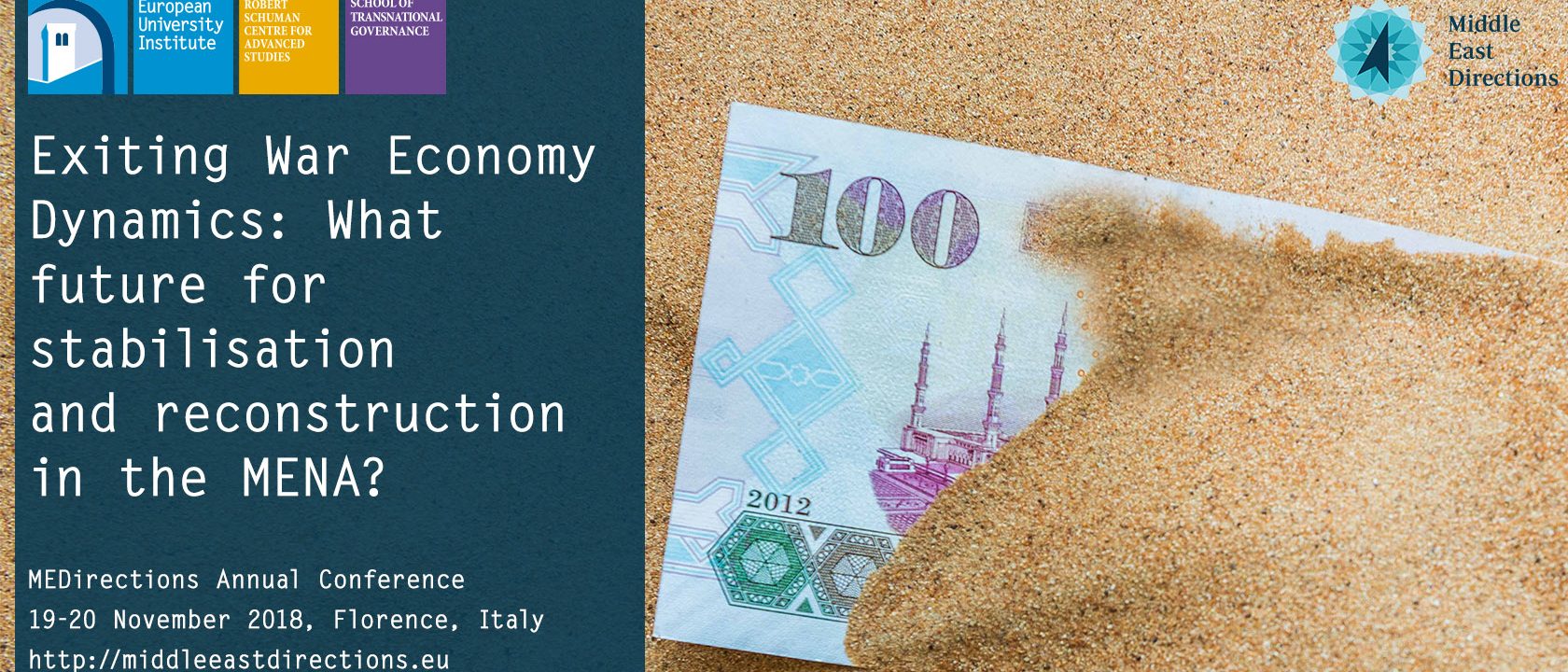In addition to the well-known security dimension, years of military strife and state collapse in the Middle East and North Africa have created new economic realities on the ground that are likely to persist in post-conflict phases. They will shape how ongoing conflicts are to end and how “normal life” might resume afterwards. The conference will explore how to work through war economy dynamics in Libya, Syria, Iraq, Yemen and neighbouring countries, and it will be structured in four thematic panels:
1. The dynamics of war economy, the realities that have been left on the ground, and the actual rules that govern economic transactions and the access to natural resources and infrastructure;
2. The political economy of reconstruction and how it may create losers and winners, and hence either contribute to peace building or to the creation of new grievances;
3. The impact of hydrocarbon revenues in oil-rich countries like Iraq and Libya, and whether they will ease reconstruction and reconciliation or conversely become an additional bone of contention between rival groups;
4. The role that market-oriented and profit-driven private sector actors might play in any future reconstruction (considering also the unlikelihood of massive inter-governmental inflows).
To conclude the conference, a roundtable of a selected group of international experts from the worlds of academics, practice and mass media will flesh out the main points highlighted during the four panels. The objective of this debate is to encourage connections, comparisons and other perspectives.
Click HERE for the Programme.



